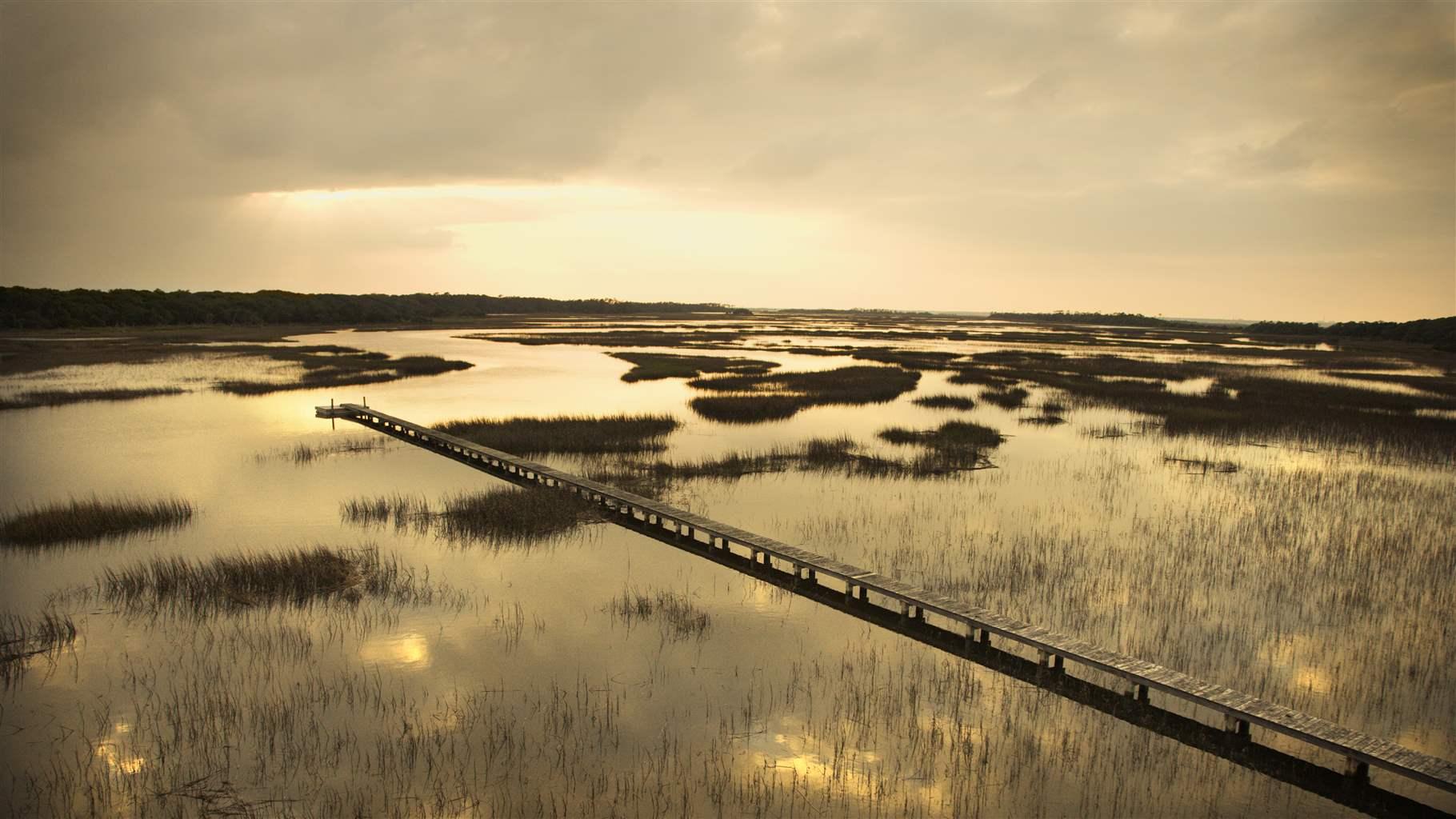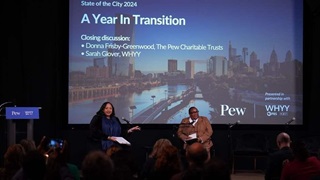U.S. States Can Play Major Role in Conserving, Expanding Carbon-Capturing Habitats
Collected resources on how states can leverage coastal wetlands and peatlands to address the effects of climate change

U.S. states and local jurisdictions are largely responsible for governing the nation’s coasts. As a result, they play a major role in protecting and restoring many habitats that capture and store climate-warming carbon—such as seagrasses, salt marshes, mangroves, forested tidal wetlands, and peatlands—and offer myriad other benefits to people and the natural environment. Collaboration and commitment among governmental entities, Tribal nations, colleges and universities, nonprofit organizations, and researchers are needed to protect and expand these vital habitats as part of larger efforts to address climate impacts.
The resources collected here reflect The Pew Charitable Trusts’ work to help states meet their greenhouse gas reduction goals.








